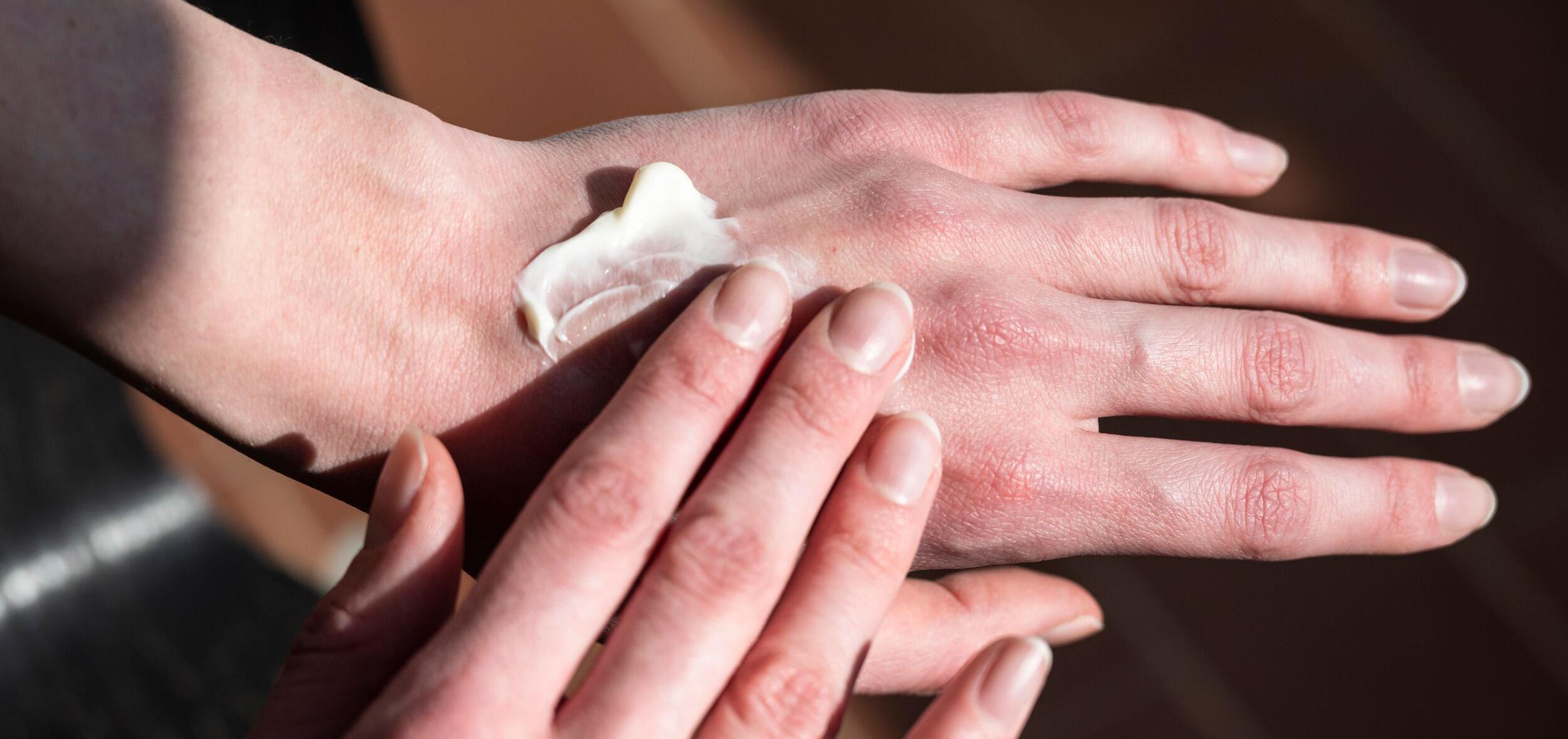What’s the Best Type of Moisturizer for Psoriasis? A Q&A with Dr. Truong
This article is part of a Q&A series in which a healthcare professional in our community answers your frequently asked questions.
We asked: “What kind of moisturizer should I use for my psoriasis?”
Allison Truong, M.D.: If you have psoriasis, moisturizers won’t address the systemic inflammation that leads to symptoms like pain, itching, and flaking. However, using moisturizer regularly can give you some temporary relief and minimize symptoms.
Moisturizer also provides protection: When your skin is cracked and broken, moisturizer creates a temporary barrier between you and the environment.
When choosing a moisturizer, consider your allergies or sensitivities, if you have them. If you’re not allergic or sensitive to anything, you can pretty much choose whatever moisturizer you want. If you like coconut oil, go for coconut oil. If you like scented cream, go for scented cream, for example.
However, many people with psoriasis tend to have sensitive skin. If you have allergies, avoid any ingredients you’re allergic to. If you’re sensitive, you should stay away from scented moisturizers. Look for those that are labeled as “scent free,” “for sensitive skin,” or “dermatologist tested.” These products will be less likely to irritate or sting your skin. They’re also a better choice if you have any cracks or open sores from your psoriasis, as they contain fewer harsh chemicals.
The thicker the moisturizer, the better. Creams tend to be thicker than lotions. One of my favorites is just plain petroleum jelly. It’s not fancy, but it works really well and helps keep your skin moisturized.
If you’re not experiencing a flare, moisturizing your skin once a day should be sufficient. Do it after a bath or shower to help trap moisture in your skin. If you’re experiencing a flare, apply moisturizer at least twice a day. It can also help supplement your treatment: Often, dermatologists recommend applying prescription topical steroids first and then a moisturizer on top to seal in the medication.
You might need to experiment a bit to find which moisturizer you like best. Moisturizers and lotions are kind of like dating: You just have to find the one you like—and hopefully you’ll eventually find one you want to stick with long term.
Your dermatologist may be able to give you some samples, which can help make it easier for you to find the right one for you without spending too much money trying products that aren’t the right fit.
You May Also Like:
Want to Read More?
Access all of Twill Care’s content, community, and experts for free!
Already a member? Login
Want to Read More?
Access all of Twill Care’s content, community, and experts for free!
sign UP For FreeAlready a member? Login


